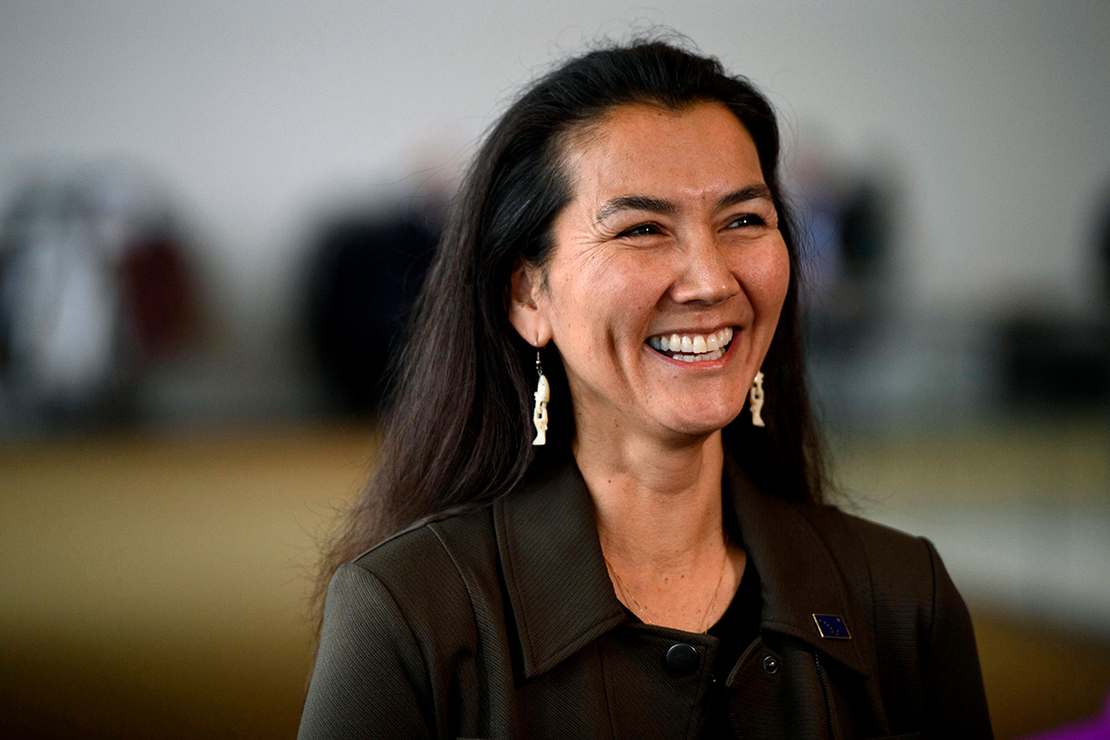Peltola defeats Palin in Alaska special election

Mary Peltola, a Yup’ik Alaska Native
ANCHORAGE, AK—Once the darling of the GOP’s 2012 anti-Obama Tea Party movement, former Vice Presidential hopeful Sarah Palin, has gone down to defeat in the Alaskan race for a spot in the US Congress. Former Alaska state Representative Mary Peltola, a Yup’ik Alaska Native, received forty percent of first place votes to defeat Palin in a ranked-choice special election.
Palin complained during the campaign, and after her loss, that a ranked-choice system is unfair to the GOP majority, although her inability to express herself in unambiguous language never explained how it was unfair. Her assertion that she would have defeated Peltola had it been a traditional top choice system is not borne out by the results. Peltola would have still won the election regardless of which system was applied.
According to her campaign website, Peltola grew up along the Kuskokwim River and started fishing when she was six years old. Later, in college, Peltola worked as a herring and salmon technician for the Alaska Department of Game and Fish. She calls herself a salmon advocate. Salmon have a deep traditional connection with Alaskan Natives and their harvesting constitutes Alaska’s third largest industry.
Regardless of whether she acts on behalf of tribal interest, Peltola has the knowledge and perspective to understand the issues facing Alaskan Natives. Darlene Wright, an Alaska Native and a longtime environmental expert and advocate in Alaska, in an interview with NSNT, said this of Peltola: “There’s a chance she can bring a broader perspective to her job. We (the Alaskan Native communities) are kind of caught between the state and the federal government in terms of alignment of tribal sovereignty.”
Wright was surprised by Palin’s defeat: “I thought she was going to win through ranked voting. I think Peltola had the better chance because the organized regions were into fishing and climate changes and voted for her.”
A recent editorial in the St Louis Dispatch explained the ranked-choice system: “The election was Alaska’s first under its ranked-choice system, in which all candidates of all parties face off in the primaries, then the top four vote-getters advance to the general election. Voters then rank the remaining candidates based on their preference, with elimination rounds automatically calculated until someone wins at least half the vote.”
The editorial continued: “In this case, Peltola and Palin were the top vote-getters in the first round of the general election. Peltola got more, but neither of them hit 50%, so the third-finishing candidate, a Republican, was dropped, and his votes were divided between them based on who his voters ranked second. (The fourth candidate in the field had already dropped out.) In the end, Peltola won with 51.5% to Palin’s 48.5%.
Wright, like many Natives, was not a Palin supporter and felt that Palin’s “ideals and priorities didn’t align with the tribal community.” While Peltola will have a responsibility to represent all Alaskans, her intimate knowledge and deep understanding of Alaskan tribal communities could give the Natives of her state an informed and sympathetic ear in Washington. D.C.
Peltola told PBS: “Alaskans just tend to vote for the person, and not necessarily the party affiliation, I think that folks who are interested in public policy, in making sure our economy stays on track—and we’re doing things to try to manage our inflation and logistic supply chain issues, and things like that—did find me appealing.”
(Contact James Giago Davies at skindiesel@msn.com)
The post Peltola defeats Palin in Alaska special election first appeared on Native Sun News Today.
